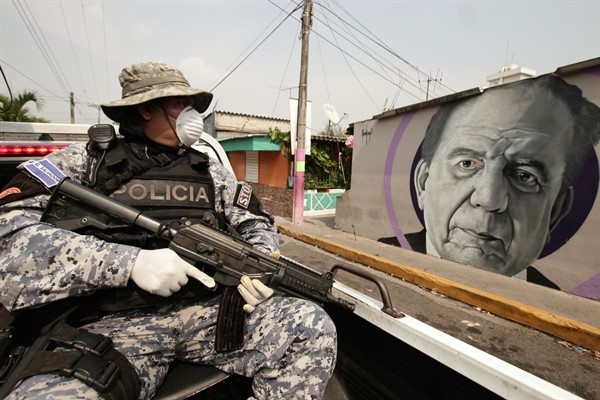El Salvador’s president, Nayib Bukele, has overseen one of the quickest and most aggressive strategies to contain the spread of the coronavirus in the Western Hemisphere. He ordered a national quarantine on March 12, four days before President Donald Trump announced federal social distancing guidelines in the United States and a week ahead of California’s statewide stay-at-home order. And he has ordered the police and the military to enforce a tough lockdown, which allows Salvadorans who work for nonessential businesses to leave their homes only twice a week to shop for food and medicine. Thousands of people have been detained for violating the restrictions on movement.
The brash, 38-year-old president’s heavy-handed approach has generally been well received by most Salvadorans, over 90 percent of whom approve of his handling of the crisis in public opinion polls. The tough measures also appear to have produced a very low infection rate, with around 1,100 confirmed cases and 20 deaths. But they have reinforced concerns, in El Salvador and elsewhere in the region, of Bukele’s troubling brand of illiberal and anti-democratic politics.
For close observers of Salvadoran politics, Bukele’s enduring popularity is not surprising. He cruised to a landslide victory in last year’s general election against candidates from El Salvador’s two traditional parties, the conservative and pro-business Nationalist Republican Alliance, or ARENA, and the left-leaning former guerillas of the Farabundo Marti National Liberation Front. Bukele won in the first round with 53 percent of the vote, despite lacking the support of any major political party.

